About UUL
U.S. United Logistics (UUL), established in 2004, is a comprehensive international logistics company specializing in trans-Pacific routes. The company’s core business is Non-Vessel Operating Common Carrier (NVOCC) international freight forwarding, and it also extends its container services to major ports worldwide.
Leveraging its high-quality service and excellent reputation, UUL has built an extensive global agency network, offering customers safe and efficient integrated logistics solutions that encompass sea, air, and land transportation.
Challenges of Business Expansion
Software vendors in traditional industries are gradually shifting from on-premises deployment to cloud-based SaaS delivery. This enhances software standardization and speeds up software delivery and updates, improving service capabilities and quality for small and medium-sized customers.
However, for a leading company like UUL, the range of services and complexity of scenarios placed extremely high demands on the data processing capacity of systems. While integrating the systems across various business sectors, several drawbacks became apparent. The IT system consistently needed to catch up to actual business operations, leading to increased cross-organization and cross-business collaboration costs. Furthermore, exemplary business practices heavily relied on experienced employees, posing challenges for promoting best practices within the organization and hindering the enterprise’s large-scale development process.
As a result, UUL began looking for a new solution. UUL needed a best-of-suite logistics delivery system as a full-link logistics service provider. In addition to the basic applications OA, CRM, and FMS, they also required other business operations supporting systems, including WMS, TMS, CDS, OMS, and a customer care system.
How can UUL develop a solution that is both flexibly integrated and cost-effective?
NocoBase: Reconstructing the Logistic Delivery System
UUL approached Yuqi Technology Inc. (hereinafter referred to as Yuqi Tech) for assistance in upgrading the entire system. After establishing a partnership, Yuqi Tech began to explore a suitable solution for UUL.
In June 2022, Zhang Zhuo, the CEO of Yuqi Tech, discovered NocoBase, the no-code development suite. Intrigued by its unique data model-driven structure, he started building up various business data models using NocoBase for trial purposes.
“During the trial, we found that NocoBase has the potential to revolutionize the way low-code apps are built.
The unique structure, which separates the frontend and backend systems, enables efficient metadata management and offers a standard UI, allowing us to create data-driven applications using a WYSIWYG approach.”
Zhang Zhuo, CEO of Yuqi Tech
NocoBase enables flexible and intuitive interface design based on data models, allowing users to receive clear and immediate feedback when interacting with data.
Zhang Zhuo also mentioned a common issue in the industry: the high cost of data governance. However, NocoBase effectively solves this problem by automatically cleaning the data as it enters NocoBase.
After proving the product concepts, the Yuqi Tech team used NocoBase as the platform infrastructure to develop UUL’s new logistics delivery system.
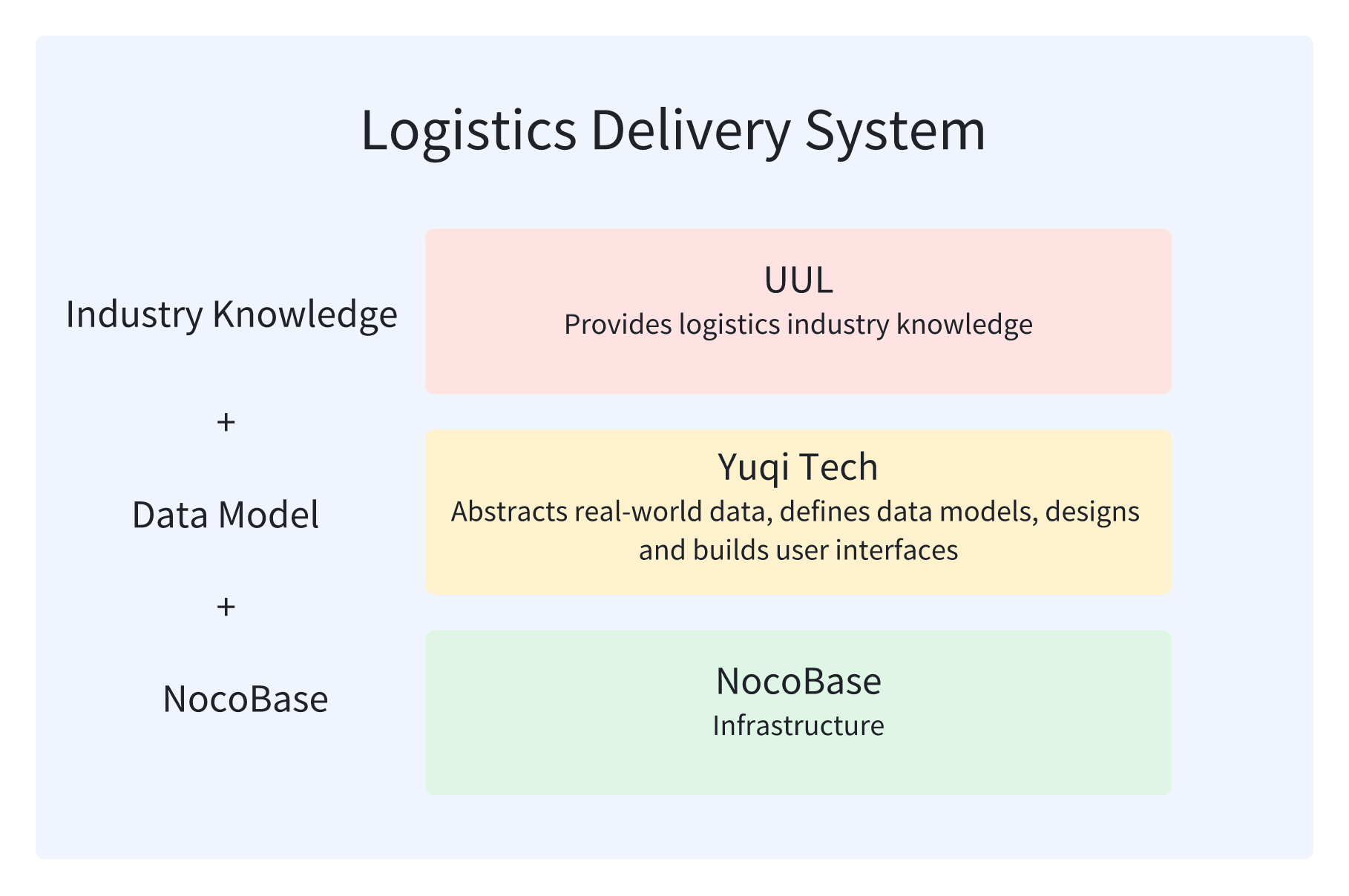
In this collaborative project, UUL contributed expertise and knowledge in the logistics industry. Yuqi Tech was responsible for data modeling and user interface design, while NocoBase provided infrastructure support. This project structure facilitated the efficient and flexible development of the logistics delivery system.
System Implemented Smoothly with Cost Decreasing
After Yuqi Tech clearly defined the project’s direction, they entered a stage of rapid development. With the flexible and robust architecture of NocoBase, the team can now complete one business requirement every week, even for complex models. Using NocoBase, it took only four months for Yuqi Tech to help UUL implement the financial system from scratch.
Zhang Zhuo shared:
“As an experienced NocoBase user, I can build a page in just 3 minutes. Once I establish the model based on data standards and configure the fields, I can set up the UI on the configuration page to develop the system. While going through business processes and integrating complex back-end functions may take longer, creating a functional page in NocoBase is generally quick. For example, our team can implement a small content management system or product center within a week. ”
Delivering digital management systems in this collaborative mode greatly improved delivery speed and significantly reduced costs to a lower magnitude.
It is attributed to the excellent system design logic of NocoBase:
- Model-driven Logic: Once the data model is defined at an early stage, building the page later becomes much more straightforward.
- Function as a Plugin: NocoBase’s architectural design allows developers to develop new plugins that adopt new requirements and can be reused.
As Zhang Zhuo said, “Once the business model and process work properly, the cost will continually decrease, as we can replicate the standard development processes on different systems.”
System Architecture:
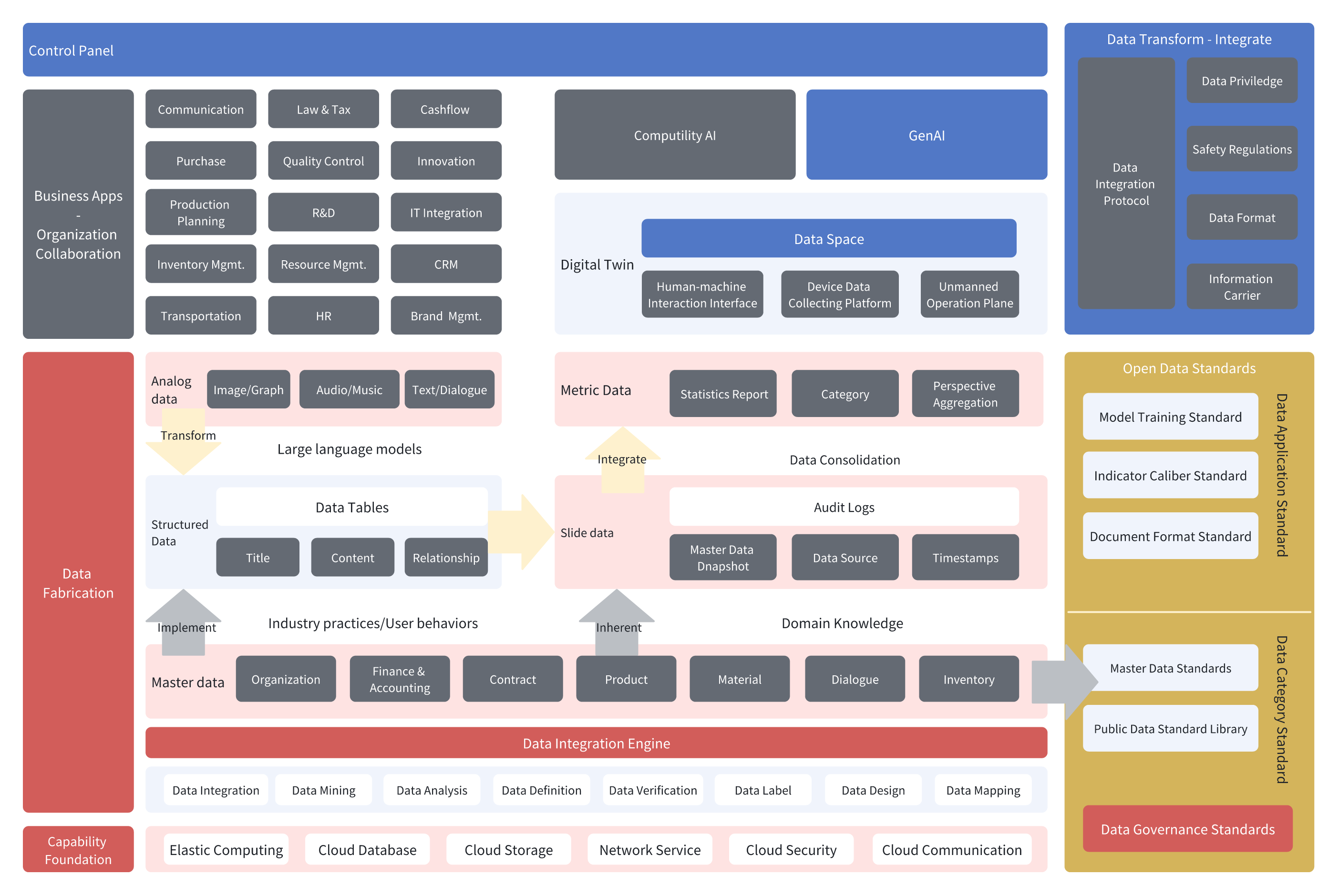
Now, UUL is gradually transitioning from its current longstanding system to NocoBase.
UUL Data Center- Accounting Catalogue:
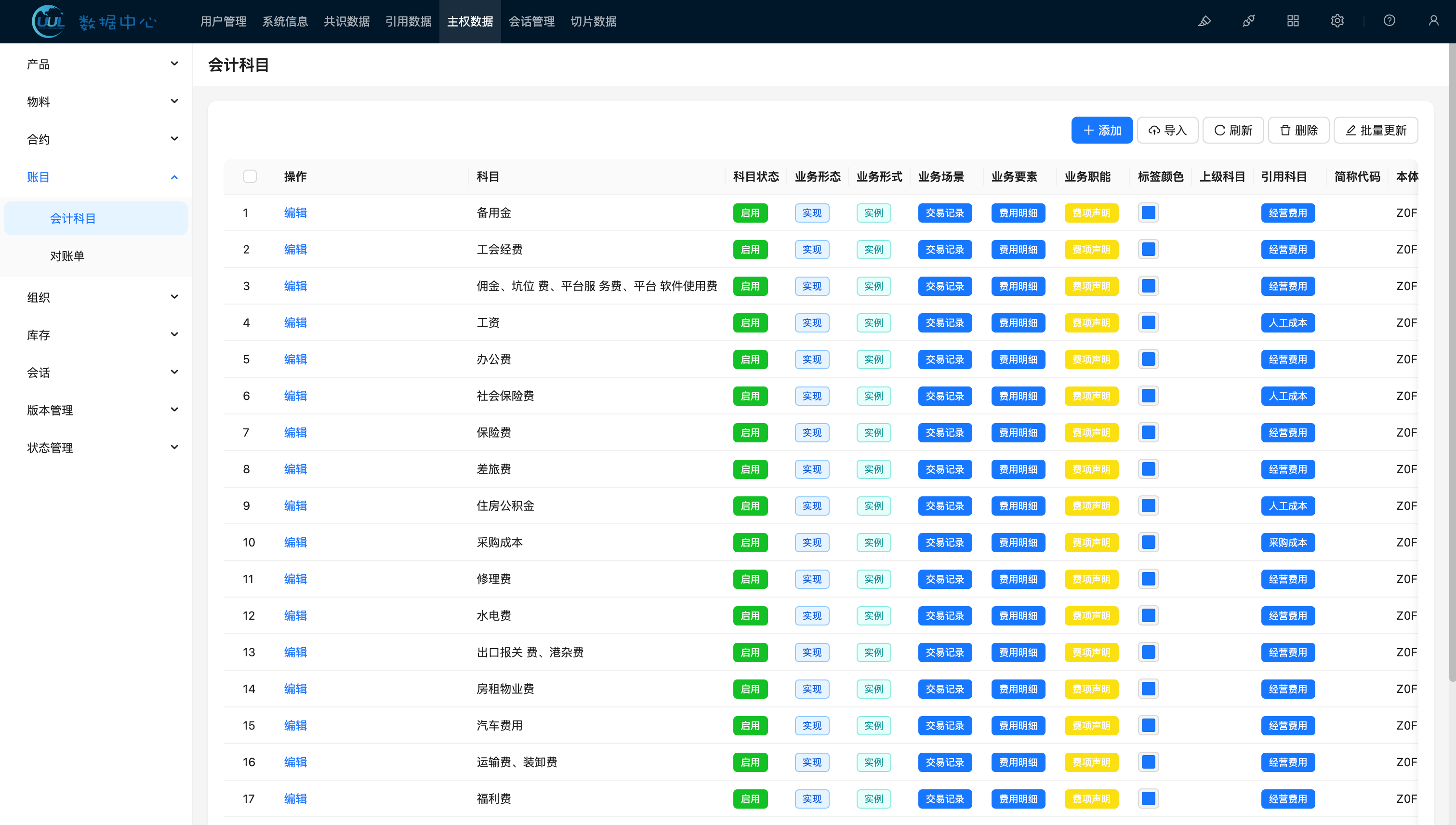
UUL Data Center – Organization Management:
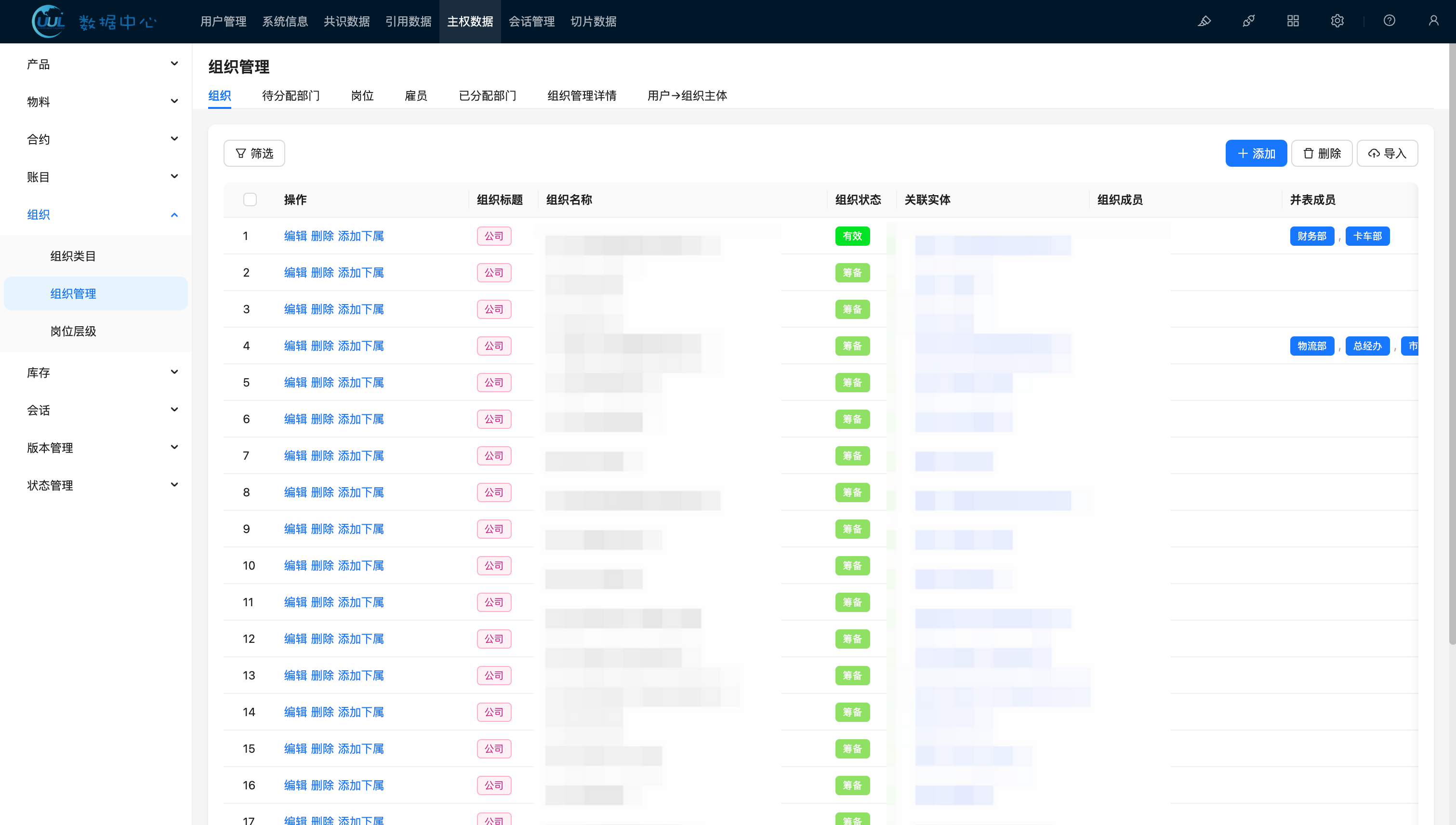
UUL Data Center – Multiple Application Management:
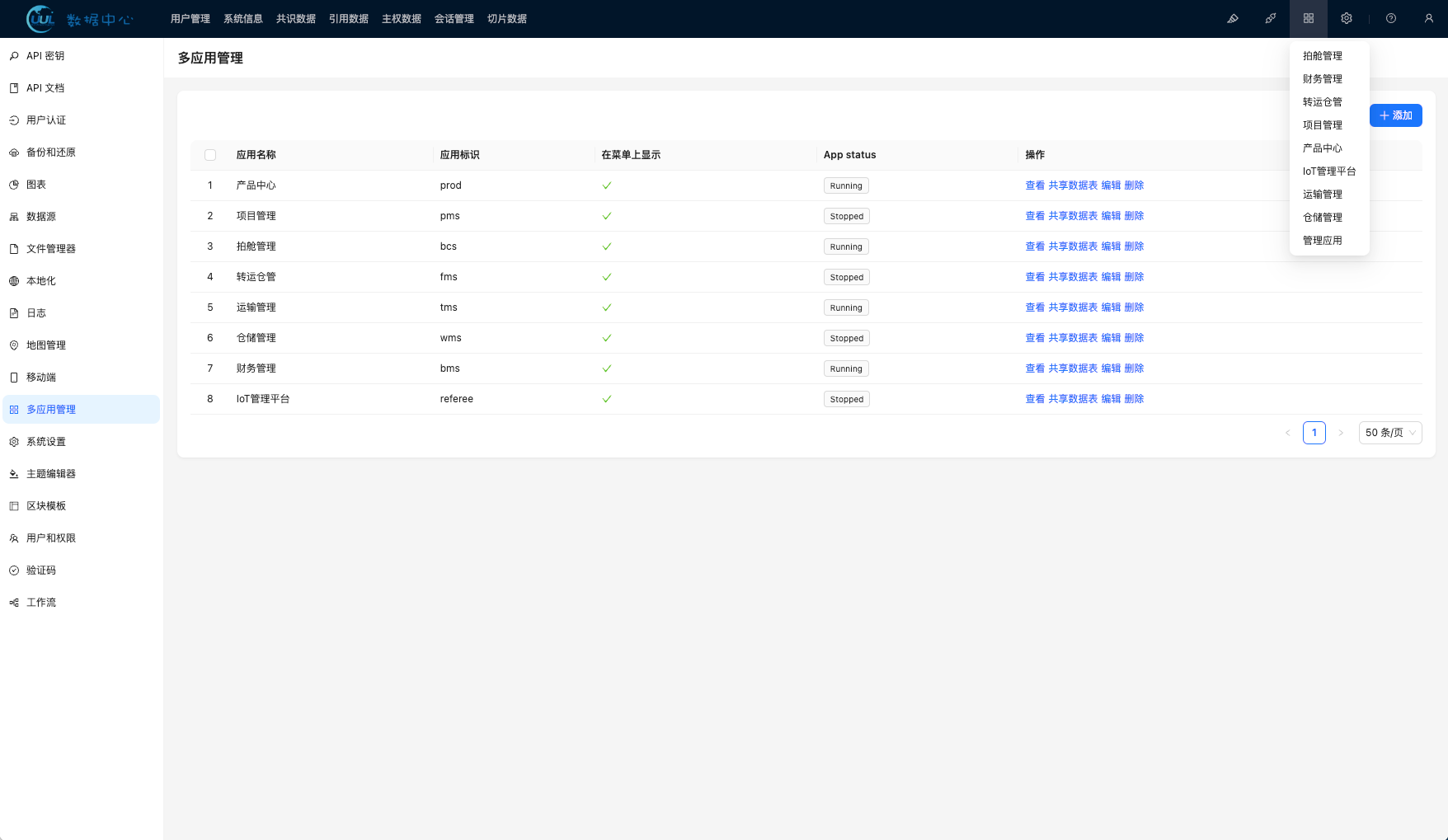
Looking Ahead
Based on the estimation, if the team upgraded UUL’s logistics delivery system with traditional development tools, the project budget may range from 10 million to 20 million CNY. However, by using NocoBase as an infrastructure for development, the expected cost would be reduced to less than 30% of the original budget. Currently, the systems built with NocoBase have replaced 10% of the existing system’s financial and 5% of the transportation part. Zhang Zhuo anticipated that by the beginning of 2025, they will transfer 50% of the system to the new one.
Looking ahead, UUL and Yuqi Tech will continue collaborating to optimize and expand the logistics delivery system by maximizing NocoBase. As more modules are gradually brought online and integrated, UUL’s entire system will become increasingly efficient and agile. UUL plans to accomplish system-wide digital transformation over the next two years to respond to rapid changes in the market and growing customer demands.
Related reading:
- Beyond Spreadsheets: Classmethod’s Employee Data Management with NocoBase
- How One Furniture Factory Built Its Own ERP—No Coding Needed
- From Designer to Builder: L&A’s Digital Transformation with NocoBase
- How KIGLAND Scaled Custom Anime Mask Production with Open-Source Tools
- How a 400+ Lawyer Firm Streamlines Commission Management with NocoBase
- Rapid Development with NocoBase: Driving Digital Transformation in Construction
- Orchisky’s Smart Manufacturing Upgrade: Why They Chose NocoBase
